- Home
- Thomas H. Cook
Fatherhood Page 7
Fatherhood Read online
Page 7
A dismissive wave. He’s not Nostradamus.
Close enough. And for what? Some nobody.
He’s not a nobody. He plays piano. A nice gig. On Bleecker Street.
My point exactly.
Amanda nibbles the first olive. What do you really think Paulie would do?
Deidre sips her drink.
Kill you.
Amanda’s olive drops into the crystal glass, ripples the vodka and vermouth. The smooth riffs of Bleecker Street grow dissonant and fearful.
You really think he would?
Over the nightbound city, the rain falls upon uncertainty and fear, the nervous tick of unsettled outcomes, things in the air, motions not yet completed. At 72nd and Broadway, it sweeps along windows coiled in neon, decorated with bottles of ale and pasted with green shamrocks.
Captain Beals. Single malt scotch. Glenfiddich. Detective Burke with Johnny Walker Black. A stack of photographs on the bar between them. Fat man. Bald. 3849382092.
This the last one?
Yeah. Feldman thinks it’s a long shot, but the guy lives in Tribeca, and it seems pretty clear the killer lives there too.
A quick nod.
His name is Harry Devane. Lives in Windsor Apartments. Just a couple buildings down from Lynn Abercrombie. Four blocks from Tiana Matthews. Been out four years.
What’s his story?
He works his way up to it by flashing, or maybe just rubbing against a girl. You know, in the subway, elevator, crap like that.
Then what?
Then he … gets violent.
How violent?
So far, assault. But pretty bad ones. The last time, the girl nearly died. He got seven years.
Ever used a gun?
No.
A sip of Glenfiddich.
Then he’s not our man.
At 93rd and Amsterdam, the rain sweeps in waves down the tavern window, Paulie Cerrello watching Jack Plato step out of the cab, taking a sip from his glass as Plato comes through the door, slapping water from his leather jacket.
Fucking storm. Jesus.
So? Gorsh?
I showed him everything. The whole deal.
And?
He ain’t in, Paulie. He’s scared of the slammer.
Paulie knocks back the drink, unhappy with the scheme of things, some old geezer scared of the slammer, the whole deal a bust.
So what now, Paulie? You want I should get another guy?
A shake of the head.
No, I got another problem.
He nods for one more shot.
You know my wife, right?
The rain sees no way out, no right decision, nothing that can slow the encroaching vise. It falls on bad judgment and poor choice and the clenched fists of things half thought through. At Park and 104th, it slaps against a closing window, water on the ledge dripping down onto the bare floor.
Shit.
Leaves it.
Phone.
Yeah?
Charlie, it’s me. Lennie.
This fucking storm flooded my goddamn apartment. Water all over the fucking floor.
Listen, Charlie. I need to borrow some cash. You know, from the guy you … from him.
A hard laugh.
You barely got away with your thumbs last time, Lennie.
But I made good, that’s all that matters, right?
How much?
Twenty-five.
Charlie thinks. Old accounts. Too many of them. Past due. Lots of heavy leaning ahead. And if the leaning doesn’t work, and somebody skips? His neck in a noose already.
So what about it, Charlie?
Not a hard decision.
No.
The rain sees last options, called bluffs, final scores, silenced bells, snuffed candles, books abruptly closed. At Broadway and 110th, the windshield wipers screech as they toss it from the glass.
Listen to that, will ya?
Yeah, what a piece of shit.
A fucking BMW, and shit wipers like that.
Might as well be a goddamn Saturn.
The box shifts slightly on Luis’s lap.
I think it’s taking a crap, Angelo.
So?
So? What if it craps through the box?
It won’t crap through the box.
Okay, so it don’t. What we gonna do?
I’m thinking.
You been thinking since we left the Village.
So what’s your idea, Luis? And don’t say cops, because we ain’t showing up at no cop-house with a fucking stolen car and a baby we don’t know whose it is.
A leftward glance, toward a looming spire.
A church. Maybe a church.
The rain falls on quick solutions, available means, a way out that relieves the burden. It falls on homeless shelters and SROs and into the creaky, precariously hanging drains of old cathedrals.
At 112th and Broadway, a blast of wind hits as the bus’ hydraulic doors open.
Eddie Gorsh rises.
Good luck with the garden.
A smile back at the kid.
Thanks.
I got a daughter, too.
Then take care of her, and maybe she’ll take care of you.
Out onto the rain-pelted sidewalk, head down, toward the building, Edna waiting for him there, relieved to have him back, the years they have left, a road he’s determined to keep straight. This, he knows, will make Rebecca happy, and that is all he’s after now.
The rain moves on, northward toward the Bronx, leaving behind new beginnings, things learned, lessons applied. At 116th and Broadway, Jamie Rourke steps out into the million, million drops, thinking of Tracey and his daughter, how he shouldn’t have said what he said, made her mad, determined to call her now, tell her how everything is going to be okay, how it’s going to be the three of them against the world, a family.
The rain falls on lost hopes and futile resolutions, redemptions grasped too late, fanciful solutions. At 116th and Broadway, it falls on Barney Siegelman as he steps out of a taxi, convinced now that his son-in-law is a crook, news he has to break to his wife, his daughter, the whole sorry scheme of things unmasked. He rushes toward the front of his building, feels the rushing tide up the sidewalk to Our Lady of Silence, where a cardboard box lies beneath a ruptured drain, a torrent gushing from its cracked mouth, filling the box with water, then over its sodden sides and down the concrete stairs, flooding the sidewalk with the stream that splashes around Siegelman’s newly polished shoes. He shakes his head again. Tomorrow he’ll have to have them shined all over again. He peers toward the church, the stairs, the shattered drain pipe, the overflowing box beneath it. Disgusting, he thinks, the way people leave their trash.
THE FIX
from Murder on the Ropes
It could have happened anytime, on any of my daily commutes on the Crosstown 42. Every day I took it at eight in the morning, rode it over to my office on Forty-second and Lex, then back again in the evening, when I’d get off at Port Authority and walk one block uptown to my place on Forty-third.
It could have happened anytime, but it was a cold January evening, a deep winter darkness already shrouding the city at six P.M. Worse still, a heavy snow was coming down, blanketing the streets and snarling crosstown traffic, particularly on Forty-second Street, where the Jersey commuters raced for a spot in the Lincoln Tunnel, clotting the grid’s blue veins as they rushed for the river like rabbits from burning woods.
I should tell you my name, because when I finish with the story, you’ll want to know it, want to check it out, see if I’m really who I say I am, really heard what I say I did that night on the Crosstown 42.
Well, it’s Jack. Jack Burke. I work as a photographer for Cosmic Advertising, my camera usually focused on a bottle of perfume or a plate of spaghetti. But in the old days, I was a street photographer for the News, shooting mostly fires and water main breaks, the sort of pictures that end up on page 8. I had a front page in ’74, though, a woman clinging with one hand to a fire escap
e in Harlem, her baby dangling from the other hand like a sack of potatoes. I snapped the button just as she let go, caught them both in the first instant of their fall. That picture had a heart, and sometimes, as I sat at my desk trying to decide which picture would best tempt a kid to buy a soda, I yearned to feel that heart again, to do or hear or see something that would work like electric paddles to shock me back to my old life.
Back in those days, working the streets, I’d known the Apple down to the core, the juke joints and after-hours dives. I was the guy you’d see at the end of the bar, the one in a rumpled suit, with a gray hat on the stool beside him. It was my seed time, and I’d loved every minute of it. For almost five years not a night had gone by when I hadn’t fallen in love with it all over again, the night and the city, the Bleecker Street jazz clubs at three a.m. when the smoke is thick and the riffs look easy, and the tab grows like a rose beside your glass.
Then Jack Burke married an NYU coed named Rikki whose thick lips and perfect ass had worked like a Mickey Finn on his brain. There were lots of flowers and a twelve-piece band. After that the blushing bride seemed to have another kid about every four days. Jack took an agency job to pay for private schools, and that was the end of rosy tabs. Then Jack’s wife hitched a ride on some other guy’s star and left him with a bill that gave Bloomingdale’s a boner. The place on Eighty-fifth went back to the helpful folks at Emigrant Savings, and Jack found a crib on West Forty-third. Thus the short version of how I ended up riding the Crosstown 42 on that snowy January night in the Year of Our Lord 2000.
The deepest blues, they say, are the ones you don’t feel, the ones that numb you, so that your old best self simply fades away, and you are left staring out the window, trying to remember the last time you leaped with joy, laughed until you cried, stood in the rain and just let it pour down. Maybe I’d reached that point when I got on the Crosstown 42 that night. And yet, I wasn’t so dead that the sight of him didn’t spark something, didn’t remind me of the old days and of how much I missed them.
And the part I missed the most was the fights.
I’ll tell you why. Because all the old saws about boxing are true. There’s no room for ambiguity in the ring. You know who the winners and the losers are. There, in that little square, under the big light, two guys put it all on the line, face each other without lawyers or tax attorneys. They stare at each other without speaking. They are stripped even of words. Boxers don’t call each other names. They don’t wave their arms and posture. They don’t yell, Hey, fuck you, you fucking bastard, you want a piece of me, huh, well, come and get it, you fucking douche bag … while they’re walking backward, glancing around, praying for a cop. Boxers don’t file suit or turn you in to the IRS. They don’t subscribe to dirty magazines in your name and have them mailed to your house. They don’t plant rumors about drugs or how maybe you’re a queer. Boxers don’t come at you from behind some piece of paper a guy you never saw before hands you as you step out your front door. Boxers don’t drop letters in the suggestion box or complain to your boss that you don’t have what it takes anymore. Boxers don’t approach at a slant. Boxers stride to the center of the ring, raise their hands, and fight. That was what I’d always loved about them, that they were nothing like the rest of us.
Even so, I hadn’t seen a match in the Garden or anywhere else for more than twenty years when I got on the Crosstown 42 that night, and the whole feel of the ring, the noise and the smoke, had by then drifted into a place within me I didn’t visit anymore. I couldn’t remember the last time I’d read a boxing story in the paper or so much as glanced at Ring magazine. As a matter of fact, that very night I’d plucked a Newsweek from the rack instead, then tramped onto the bus, planning to pick up a little moo shoo pork when I got off, then trudge home to read about this East Hampton obstetrician who’d given some Jamaican bedpan jockey five large to shoot his wife.
Then, out of the blue, I saw him.
He was crouched in the back corner of the bus, his face turned toward the glass, peering out at the street, though he didn’t seem to be watching anything in particular. His eyes had that look you’ve all seen. Nothing going on, precious little coming out. A dead, dull stare.
His clothes were so shabby that if I hadn’t noticed the profile, the gnarled ear and flattened nose, I might have mistaken him for a pile of dirty laundry. Everything was torn, ragged, the scarf around his neck riddled with holes, bare fingers nosing through dark blue gloves. It was the kind of shabbiness that carries its own odor, and which urban pioneers inevitably associate with madness and loose bowels. Which, on this bus packed to the gills, explained the empty seat beside him.
I might have kept my distance, might have stared at him a while, remembering my old days by remembering his, then discreetly stepped off the bus at my appointed stop, put the whole business out of my mind until I returned to work the next morning, met Max Groom in the men’s room and said, Hey, Max, guess who was on the Crosstown 42 last night? Who? Vinnie Teague, that’s who. Irish Vinnie Teague, the Shameful Shamrock. Mother of God, he’s still alive? Well, in a manner of speaking.
And that might have been the end of it.
But it wasn’t.
You know why? Because, in a manner of speaking, I was also still alive. And what do the living owe each other, tell me this, if not to hear each other’s stories?
So I muscled through the crowd, elbowing my way toward the rear of the bus while Irish Vinnie continued to stare out into the fruitless night, his face even more motionless when looked upon close up, his eyes as still as billiard balls in an empty parlor.
The good news? No smell. Which left the question, Is he nuts?
Language is a sure test for sanity, so I said, “Hey there.”
Nothing.
“Hey.” This time with a small tap of my finger on his ragged shoulder.
Still nothing, so I upped the ante. “Vinnie?”
A small light came on in the dull, dead eyes.
“Vinnie Teague?”
Something flickered, but distantly, cheerlessly, like a candle in an orphanage window.
“It’s you, right? Vinnie Teague?”
The pile of laundry rustled, and the dull, dead eyes drifted over to me.
Silence, but a nod.
“I’m Jack Burke. You wouldn’t know me, but years ago I saw you at the Garden.”
The truth was I’d seen Irish Vinnie Teague, the Shameful Shamrock, quite a few times at the Garden. I’d seen him first as a light heavyweight, then later, after he’d bulked up just enough to tip the scales as a heavyweight contender.
He’d had the pug face common to boxers who’d come up through the old neighborhood, first learned that they could fight not in gyms or after-school programs but in barrooms and on factory floors, the blood of their first opponents soaked up by sawdust or metal shavings in places where no one got saved by the bell.
It was Spiro Melinas who’d first spotted Vinnie. Spiro had been an old man even then, bent in frame and squirrelly upstairs, a guy who dipped the tip of his cigar in tomato juice, which, he said, made smoking more healthy. Spiro had been a low-watt fight manager who booked tumbledown arenas along the Jersey Shore, or among the rusting industrial towns of Connecticut and Massachusetts. He’d lurked among the fishing boats that rocked in the oily marinas of Fall River and New Bedford, and had even been spotted as far north as coastal Maine, checking out the fish gutters who manned the canneries there, looking for speed and muscle among the flashing knives.
But Spiro hadn’t found Vinnie Teague in any of the places that he’d looked for potential boxers during the preceding five years. Not in Maine or Connecticut or New Jersey. Not in a barroom or a shoe factory or a freezing cold New England fishery. No, Vinnie had been right under Spiro’s nose the whole time, a shadowy denizen of darkest Brooklyn who, at the moment of discovery, had just tossed a guy out the swinging doors of a women’s shelter on Flatbush. The guy had gotten up, rushed Vinnie, then found himself staggering backwar
d under a blinding hail of lefts and rights, his head popping back with each one, face turning to pulp one lightning fast blow at a time, though it had been clear to Spiro that during all that terrible rain of blows, Vinnie Teague had been holding back. “Jesus Christ, if Vinnie hadn’t been pulling his punches,” he later told Salmon Weiss, “he’d have killed the poor bastard with two rights and a left.” A shake of the head, Spiro’s eyes fixed in dark wonderment. “I’m telling you, Salmon, just slapping him around you might say Vinnie was, and the other guy looked like he’d done twelve rounds with a metal fan.”
Needless to say, it was love at first sight.
And so for the next two years Spiro mothered Vinnie as if he were a baby chick. He paid the rent and bought the groceries so Vinnie could quit his prestigious job as a bouncer at the women’s shelter. He paid for Vinnie’s training, Vinnie’s clothes, Vinnie’s birthday cake from Carvel, an occasion at which I was present, my first view of Irish Vinnie Teague. He was chewing a slab of ice cream cake while Spiro looked on, beaming. Snap. Flash. Page 8 over the lead line, UP-AND-COMER BREAKS TRAINING ON HIS 24TH.
He’d continued upward for the next four years, muscling his way higher and higher in the rankings until, at just the moment he came in striking distance of the title, Irish Vinnie had thrown a fight.
There are fixes and there are fixes, but Irish Vinnie’s fix was the most famous of them all.
Why?
Because it was the most transparent. Jake LaMotta was Laurence Olivier compared to Vinnie. Jake was at the top of the Actors Studio, a recruiting poster for the Strasburg Method, the most brilliant student Stella Adler ever had … compared to Vinnie. Jake LaMotta took a dive, but Irish Vinnie took a swan dive, a dive so obvious, so awkward and beyond credulity, that for the first and only time in the history of the dive, the fans themselves started swinging, not just booing and waving their fists in the air, not just throwing chairs into the ring, but actually surging forward like a mob to get Vinnie Teague and tear his lying heart out.
Thirty-seven people went to Saint Vincent’s that night, six of them cops who, against all odds, managed to hustle Vinnie out of the ring (from which he’d leaped up with surprising agility) and down into the concrete bowels of the Garden where he sat, secreted in a broom closet, for more than an hour while all hell broke loose upstairs. Final tab, as reported by the Daily News, eighty-six thousand dollars in repairs. And, of course, there were lawsuits for everything under the sun so that by the end of the affair, Vinnie’s dive, regardless of what he’d been paid for it, had turned out to be the most costly in boxing history.

 The Interrogation
The Interrogation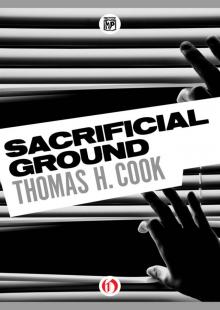 Sacrificial Ground
Sacrificial Ground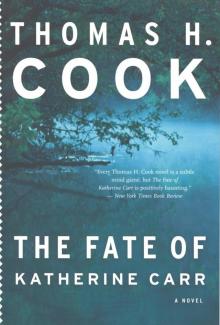 The Fate of Katherine Carr
The Fate of Katherine Carr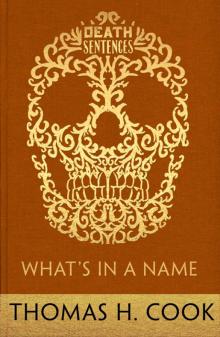 What's In A Name
What's In A Name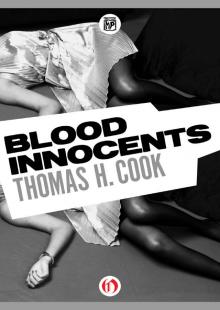 Blood Innocents
Blood Innocents Peril
Peril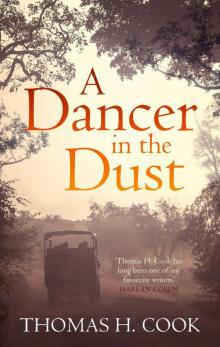 A Dancer In the Dust
A Dancer In the Dust Breakheart Hill
Breakheart Hill The Chatham School Affair
The Chatham School Affair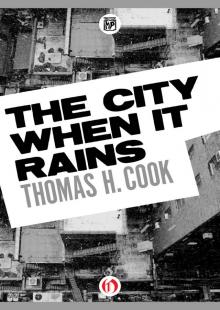 The City When It Rains
The City When It Rains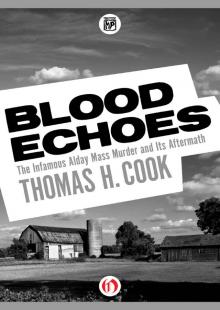 Blood Echoes
Blood Echoes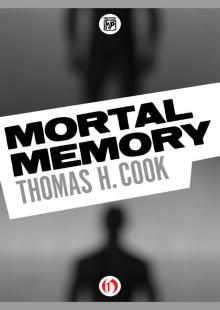 Mortal Memory
Mortal Memory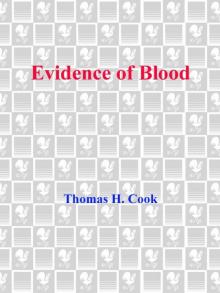 Evidence of Blood
Evidence of Blood Into the Web
Into the Web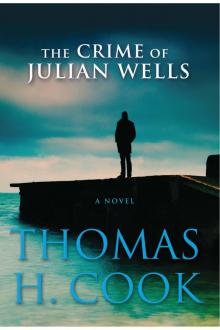 The Crime of Julian Wells
The Crime of Julian Wells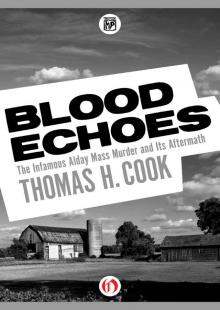 Blood Echoes: The Infamous Alday Mass Murder and Its Aftermath
Blood Echoes: The Infamous Alday Mass Murder and Its Aftermath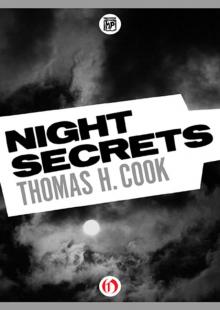 Night Secrets
Night Secrets Places in the Dark
Places in the Dark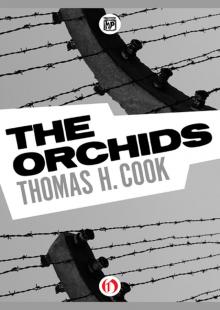 The Orchids
The Orchids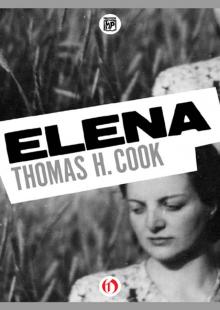 Elena
Elena Streets of Fire
Streets of Fire Instruments of Night
Instruments of Night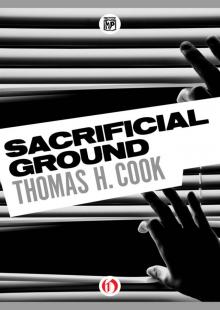 Sacrificial Ground fc-1
Sacrificial Ground fc-1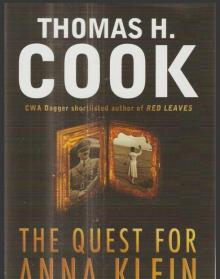 The Quest for Anna Klein
The Quest for Anna Klein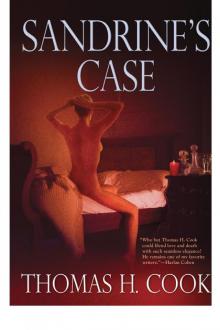 Sandrine's Case
Sandrine's Case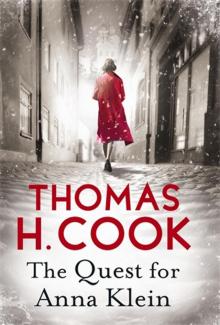 Quest for Anna Klein, The
Quest for Anna Klein, The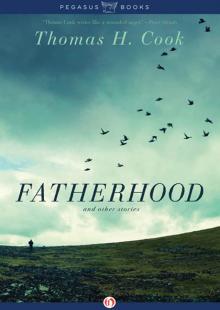 Fatherhood
Fatherhood Flesh and Blood
Flesh and Blood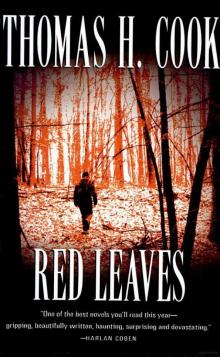 Red Leaves
Red Leaves